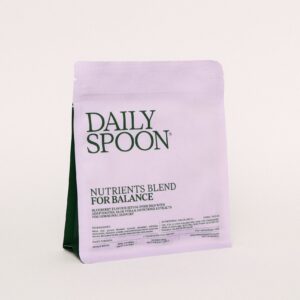Cordyceps, a Tibetan mushroom (Cordyceps in English) that grows at high altitudes on plateaus, is becoming increasingly popular in the West as a dietary supplement due to its potential health effects. But what exactly is cordyceps, and what are its possible benefits and side effects? In this article, we will explore the key aspects of cordyceps, including its origin, potential health benefits, and how to use it safely. We will also look at possible side effects and interactions with medications.
What Is Cordyceps?
Cordyceps is a species of parasitic fungus that is considered a natural adaptogen. It grows at high altitudes on the Tibetan Plateau and has been used for centuries in traditional Chinese medicine. In recent years, it has gained popularity in the West as a dietary supplement due to its potential positive effects on health.
Benefits of Cordyceps
One of the main benefits of cordyceps is its ability to support the immune system. It is believed to contain beta-glucans—complex sugars that may stimulate the immune system by activating certain cells and proteins. This can help the body fight off infections and diseases.
Cordyceps sinensis is also known for its potential to enhance athletic performance. Some studies suggest that it increases oxygen uptake and improves endurance, which may be beneficial for athletes or individuals who exercise regularly. In addition, it may help reduce inflammation in the body, potentially aiding faster recovery after physical exertion.
Another possible benefit of cordyceps mushrooms is their ability to support heart health. It is often claimed that cordyceps can help lower blood pressure and cholesterol levels, as well as reduce the risk of blood clots and strokes. However, more research is needed to confirm these effects with certainty.
Below, we provide more detailed information on the potential benefits of cordyceps for kidneys, energy, hormones, and the immune system.

Cordyceps for Kidney Health
Cordyceps has traditionally been used in Chinese medicine for its potential to support kidney function. Some studies suggest that cordyceps may have protective effects on the kidneys, including reducing oxidative stress and inflammation, as well as promoting the regeneration of damaged kidney cells. Additionally, cordyceps may be beneficial for individuals with kidney disease, as it has been shown to reduce proteinuria (excess protein in the urine) and improve overall kidney function.
However, more research is needed to fully understand the effects of cordyceps on kidney health and to determine the optimal dosage and duration of use. As with any dietary supplement, it is important to consult your healthcare provider before starting cordyceps to ensure it is safe and appropriate for your individual needs.
Cordyceps for Energy
In traditional medicine, cordyceps has also become popular as a natural energy booster and a performance enhancer for athletes and fitness enthusiasts. It is believed to improve endurance and reduce fatigue by increasing the body’s oxygen utilization. Cordyceps also has anti-inflammatory properties, which may help reduce muscle soreness and promote faster recovery after physical exertion. Additionally, it may help maintain healthy hormone levels, such as testosterone, which can contribute to improved athletic performance.
Although more research is needed to fully understand its effects on physical performance, cordyceps is generally considered safe when used appropriately and, with medical guidance, may be a beneficial supplement for those looking to enhance their energy and endurance during physical activity.
Cordyceps for Hormonal Balance
Cordyceps is also believed to help regulate hormones such as cortisol and testosterone. Cortisol is a hormone that plays a key role in the body’s response to stress, but chronically elevated cortisol levels can negatively impact health—potentially leading to weight gain, anxiety, or depression. Some studies suggest that cordyceps may help regulate cortisol levels, thereby reducing stress and improving overall well-being.
Other studies indicate that cordyceps may increase levels of testosterone—a hormone important for muscle growth, energy, and overall vitality. While more research is needed to fully understand the impact of cordyceps on hormones, these findings suggest it may serve as a natural supplement to support hormonal balance.
Cordyceps for Immune Support
Cordyceps is believed to be a natural immune-boosting supplement, containing beta-glucans—complex sugars that activate specific immune cells and proteins, enhancing the body’s ability to fight infections. It also has anti-inflammatory properties, which may help reduce the risk of chronic diseases caused by inflammation. Additionally, cordyceps has demonstrated antiviral and antibacterial effects, showing effectiveness against viruses such as herpes simplex and bacteria like Staphylococcus aureus.

How to Use Cordyceps
Cordyceps is available in various forms, including capsules, powders, and extracts. How you use cordyceps depends on your individual needs—it can be taken as a dietary supplement or added to foods and beverages. The recommended dosage depends on the form and concentration of the product, so it’s important to follow the instructions on the label or consult a healthcare professional. In our opinion, the most convenient and effortless option is cordyceps capsules. You only need to take a few per day with a glass of water.
Side Effects
Side effects from cordyceps mushrooms are not common, and the supplement is generally considered safe for most people. However, side effects cannot be ruled out entirely. According to sources, the most commonly reported side effects may include digestive discomfort, dry mouth, and dizziness. Additionally, cordyceps may interact with certain medications, so it is important to consult a healthcare professional before using it—especially if you are taking any other medications.
Brief Summary
In summary, cordyceps is a natural adaptogen that, according to research, may offer various health benefits, including supporting a healthy immune system, improving athletic performance, balancing hormones, and benefiting kidney and heart health. If you plan to use cordyceps as a dietary supplement, it is important to follow the recommended dosages and consult with a healthcare professional to ensure its safety and effectiveness for your individual needs.
Sources:
- https://www.ncbi.nlm.nih.gov/pmc/articles/PMC3121254/
- https://www.ncbi.nlm.nih.gov/pmc/articles/PMC5236007/
- https://www.ncbi.nlm.nih.gov/pmc/articles/PMC5855636/
- https://www.ncbi.nlm.nih.gov/pmc/articles/PMC6117399/
- https://www.ncbi.nlm.nih.gov/pmc/articles/PMC3991026/
- https://pubmed.ncbi.nlm.nih.gov/28186845/
- https://www.ncbi.nlm.nih.gov/pmc/articles/PMC4769999/
- https://www.ncbi.nlm.nih.gov/pmc/articles/PMC4277626/
- https://www.ncbi.nlm.nih.gov/pmc/articles/PMC3110835/
- https://pubmed.ncbi.nlm.nih.gov/30590927/




























